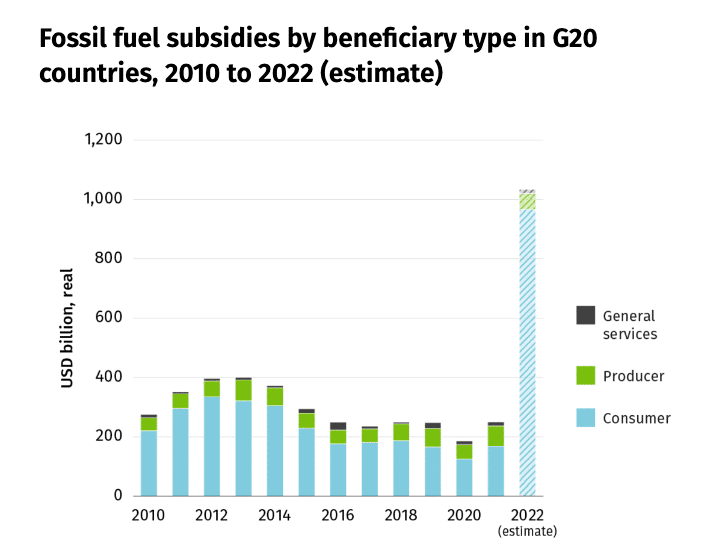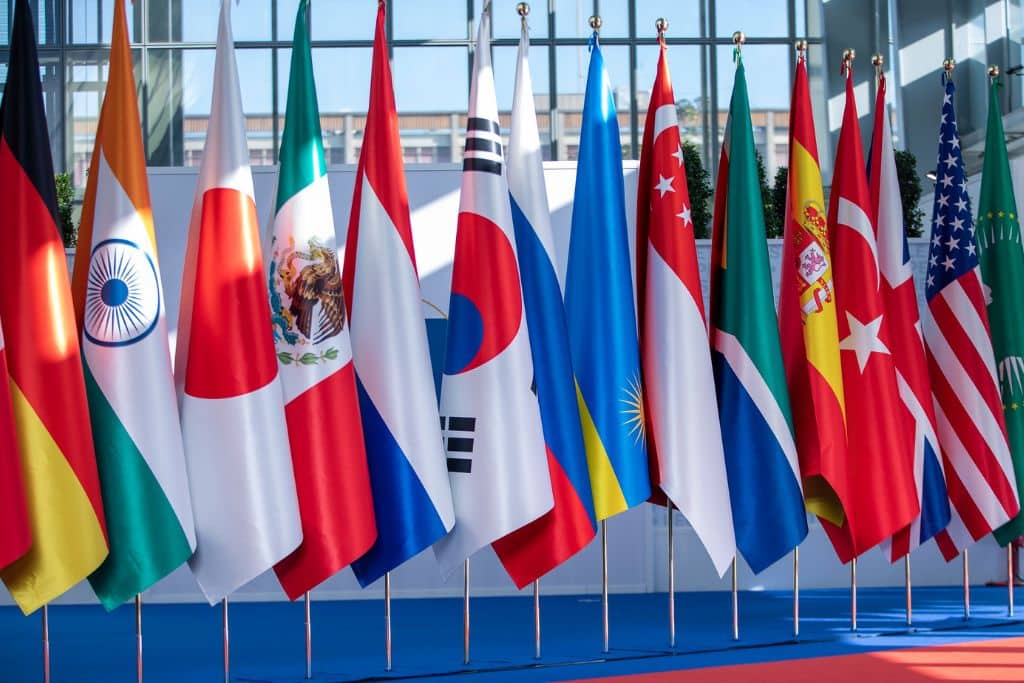The letter to G20 leaders came ahead of a $11-billion pledge by 11 wealthy nations to fund World Bank efforts to tackle global challenges and boost sustainable development.
—
G20 leaders were urged to reform the global financial system and step up efforts to achieve global sustainable development and fight the climate crisis in an open letter published ahead of last week’s Spring meetings of international financial institutions.
In the letter, the 135 signatories, which include actor Stephen Fry, film producer Richard Curtis, and singer Annie Lennox, appealed to the world’s largest economies to “triple their investments in multilateral development banks, end crippling debt for low-income countries, and make polluters pay.
“Global financial institutions like the World Bank and the IMF [International Monetary Fund] can help mobilise the funding needed to tackle the polycrisis and achieve the Global Goals, but they need a reboot. And their shareholders – the G20 leaders – are the ones that can make that happen,” the letter, coordinated by Project Everyone, read.
G20 countries are historically the largest contributors to global greenhouse gas emissions, accounting for around 81% of the total share. An August 2023 report also showed that G20 countries alone spent a record $1.4 trillion in fossil fuel subsidies in 2022, more than double the pre-pandemic and pre-energy crisis levels of 2019. The world’s 20 largest economies also provided some $370 billion to the fossil fuel industry through investments by state-owned enterprises and loans from public finance institutions.
“These figures are a stark reminder of the massive amounts of public money G20 governments continue to pour into fossil fuels – despite the increasingly devastating impacts of climate change,” said Tara Laan, lead author of the report.

In a speech last week, UN climate chief Simon Stiell called on key finance players – including the World Bank, the IMF as well as the G7 and G20 leadership – to push for a bolder climate finance deal at COP29 in Baku, Azerbaijan, saying it would not only benefit developing countries but also help protect global supply chains all economies depend on.
Despite poor and vulnerable countries raising their voices for decades to demand financial support to deal with the climate crisis, many believe that wealthy nations are not doing enough, with finance still flowing far from what is needed. The establishment of a Loss and Damage Fund in 2022 and its operationalization, hailed “historic,” at COP28 last year marked a significant step forward in the fight for climate justice. However, contributions to the fund still fall significantly short of what is needed to cover the real needs of developing countries, with the United Nations Framework Convention on Climate Change (UNFCCC) estimating that developing countries, excluding China, will need climate financing ranging from US$1 trillion annually in 2025 to $2.4 trillion by 2030.
You might also like: Climate Justice and Loss and Damage: A Look At What COP28 Meant for Historical Responsibility in Climate Action
$11 Billion Pledge
The letter was sent ahead of last week’s annual Spring meetings of the International Monetary Fund (IMF) and World Bank, which brought together UN officials, climate and financial ministers to supercharge global efforts to tackle climate change.
At the end of the meetings on Friday, 11 wealthy nations, including Japan ($1bn), the US, France, Germany, Italy, and the UK, announced contributions totalling US$11 billion to fund the World Bank’s efforts to tackle global challenges such as the climate crisis and pandemics and boost sustainable development.
The money could be leveraged to result in up to $70 billion over a decade, the bank said, boosting its lending power and thus facilitating addressing cross-border challenges and advancing global development.
“We worked hard to develop these new financial instruments that boost our lending capacity, multiply donor funds, and ultimately allow us to improve the lives of more people,” said Ajay Banga, World Bank Group President. “The generosity of these countries is both an endorsement of the progress we have made to reform the Bank, and a sign of their shared commitment to development globally.”
Last week, the bank also launched the Global Collaborative Co-Financing Platform, a tool to facilitate co-financing among a coalition of ten multilateral development banks (MDBs) while reducing the burden on partner countries. For countries, the new platform will reduce the administrative burden and transaction costs, and enable better coordinated financing in line with their priorities – resulting in greater development impact, the World Bank said in a statement.
The World Bank also unveiled strategies to support countries in delivering quality, affordable health services to 1.5 billion people by 2030 and to provide electricity from renewables to 250 million Africans by 2030 were also announced.
Featured image: Paul Kagame/Flickr
This story is funded by readers like you
Our non-profit newsroom provides climate coverage free of charge and advertising. Your one-off or monthly donations play a crucial role in supporting our operations, expanding our reach, and maintaining our editorial independence.
About EO | Mission Statement | Impact & Reach | Write for us


















